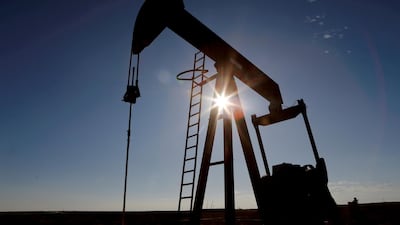Global oil demand growth will decelerate due to a new wave of Covid-19 infections and renewed lockdowns, dampening hopes for a strong rebound in the short term, according to the Institute of International Finance.
It is unlikely that demand will reach the post-pandemic level of 100 million barrels per day before 2023, the institute said in its report titled Oil Market: Expanding supply, fragile demand recovery.
“The decline in the elasticity of global demand since the mid-1990s, with respect to gross domestic product, will accelerate,” said Garbis Iradian, the IIF’s chief economist for the Mena region.
“Changes in behaviour [including working from home and cuts in business and vacation travel] due to the pandemic and the adoption of policies by major economies to support a low-carbon future will further reduce the growth in global demand for oil.”
The Opec+ alliance led by Saudi Arabia and Russia plans to add 2 million bpd back to the market over the next three months, with a view to restoring a quarter of the production cuts agreed on a year ago in response to the pandemic.
International benchmark Brent settled 3.38 per cent higher at $64.86 a barrel on Thursday while West Texas Intermediate, the US gauge, closed 3.87 per cent higher at $61.45 a barrel. Murban, the Abu Dhabi benchmark, closed 3.5 per cent higher at $63.90.
Oil markets were closed on Friday.
The IIF does not expect global oil demand to recover to pre-pandemic levels in the short run.
However, it does expect it to rise by 5.4 million bpd to 96.8 million bpd this year after having declined by 8.5 million bpd in 2020.
“Fiscal stimulus in advanced economies, particularly in the US, and the progress of coronavirus vaccinations should support the strong global economic recovery and global oil demand,” said Mr Iradian.
In advanced economies, oil consumption is expected to increase by 2.4 million bpd, driven mainly by the US.
In emerging and developing economies, oil demand is projected to rise by 3 million bpd, with China and India driving the increase.
The IIF said it is maintaining its oil price forecast at $60 a barrel this year and expects global oil stocks to rise, supported by the gradual recovery in supply.
“While rising oil prices continue to reflect gradual recovery in global demand, they were also supported by temporary supply limitations,” said Mr Iradian.
These limitations included the recent Suez Canal blockage, which backed up shipments of about 13 million barrels of crude oil and petroleum products at the mouth of the passageway.
The Washington institute expects global oil supply to exceed demand, with oil prices set to stabilise this year.


